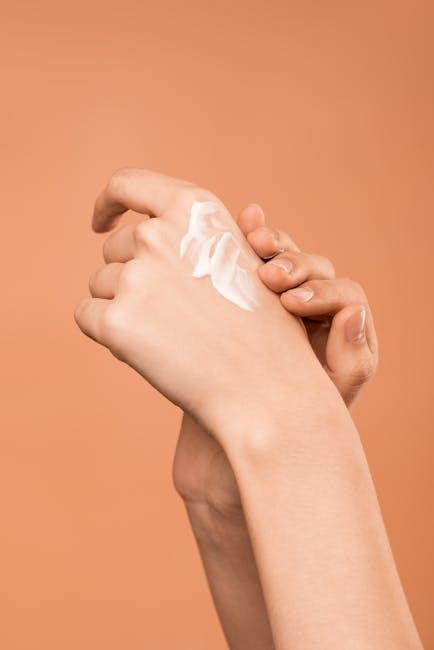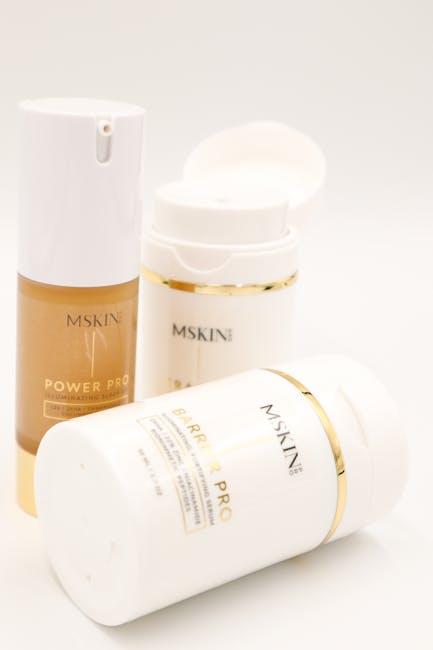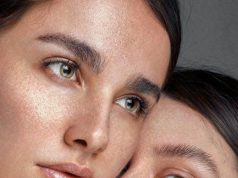In a world where time is both a relentless force and a coveted resource, the quest for eternal youth remains one of humanity’s most enduring pursuits. From ancient potions brewed in secret to modern serums promising miracles in sleek bottles, the desire to defy the sands of time has never waned. Enter the realm of anti-aging creams—a booming industry that pledges to smooth, tighten, and rejuvenate the skin, offering hope to those who wish to turn back the clock. But as the allure of youthful skin captivates millions, a question lingers in the air, whispered in beauty aisles and dermatologists’ offices alike: Do these anti-aging elixirs truly deliver on their promises, or are they merely dreams in a jar? As we delve into the science, marketing, and real-world experiences behind these popular products, we aim to uncover the truth about their effectiveness and help you navigate the ever-evolving landscape of skincare.
Understanding the Science Behind Anti-Aging Ingredients
Many anti-aging creams boast an array of ingredients that promise to rejuvenate and restore youthful skin. But what is the science behind these claims? Retinoids, derived from vitamin A, are renowned for their ability to accelerate cell turnover and stimulate collagen production, effectively reducing the appearance of fine lines. Peptides, small chains of amino acids, act as the building blocks of proteins like collagen and elastin, helping to firm and plump the skin.
Another powerhouse ingredient is hyaluronic acid, celebrated for its remarkable ability to retain moisture, thereby enhancing skin hydration and elasticity. Antioxidants such as vitamin C, green tea, and niacinamide play a crucial role in protecting the skin from oxidative stress and environmental damage. These components often work in synergy, creating a robust defense against the signs of aging. When choosing a product, consider the following key ingredients:
- Retinoids – Boost collagen and cell turnover
- Peptides – Support skin structure and firmness
- Hyaluronic Acid – Enhance moisture retention
- Antioxidants – Protect against environmental damage
The Role of Lifestyle in Enhancing Cream Efficacy
In the pursuit of youthful skin, the synergy between lifestyle choices and topical treatments cannot be overstated. While anti-aging creams promise a fountain of youth in a jar, their efficacy is significantly enhanced when paired with a holistic approach to skincare. Diet, hydration, and exercise play pivotal roles in this dynamic partnership. A diet rich in antioxidants, such as fruits and vegetables, provides the skin with essential nutrients that combat oxidative stress, a major contributor to aging. Hydration keeps the skin plump and elastic, allowing creams to penetrate deeper and work more effectively. Meanwhile, regular exercise boosts circulation, delivering vital nutrients to skin cells and promoting a natural glow.
Beyond physical habits, stress management and sleep quality are equally crucial. Chronic stress can accelerate aging by increasing the levels of cortisol, a hormone that breaks down collagen, while adequate sleep allows the body to repair and regenerate, maximizing the benefits of any skincare routine. Additionally, environmental factors such as sun exposure and pollution should not be overlooked. Protecting the skin with SPF and cleansing away pollutants ensures that anti-aging creams can work without interference. By integrating these lifestyle practices, one can create an optimal environment for anti-aging creams to perform at their best, leading to more noticeable and long-lasting results.

Expert Opinions on Popular Anti-Aging Products
According to dermatologists, the efficacy of anti-aging creams largely depends on their ingredients and how consistently they are used. Retinoids, for example, are praised for their ability to accelerate cell turnover and boost collagen production, potentially reducing fine lines. Vitamin C is another ingredient often highlighted for its antioxidant properties that can help brighten the skin and even out the complexion. However, experts warn that not all products are created equal, and results can vary based on individual skin types and concerns.
Skincare professionals often recommend looking for products with scientifically backed ingredients. Here are some commonly endorsed components:
- Hyaluronic Acid: Known for its hydrating properties, it helps plump the skin.
- Peptides: These amino acids may support skin repair and elasticity.
- Niacinamide: A form of Vitamin B3 that can help improve skin texture and tone.
While the allure of turning back the clock is enticing, many experts emphasize that consistent sun protection and a healthy lifestyle are crucial components of any anti-aging regimen.

Choosing the Right Anti-Aging Cream for Your Skin Type
Finding the ideal anti-aging cream involves understanding your skin’s unique characteristics. Different skin types have varying needs, and choosing the right product can make all the difference in your skincare routine. For dry skin, seek creams with rich, hydrating ingredients like hyaluronic acid and glycerin, which help lock in moisture and restore elasticity. Oily skin benefits from lightweight, non-comedogenic formulas that contain ingredients such as retinol and salicylic acid to minimize oil production and reduce the appearance of pores. Those with sensitive skin should look for hypoallergenic options that include soothing elements like chamomile or aloe vera to prevent irritation.
- Combination skin: Opt for a balanced formula that hydrates dry areas without overloading oily zones.
- Mature skin: Look for creams enriched with peptides and antioxidants to boost collagen production and fight free radicals.
- Normal skin: Enjoy the flexibility to choose based on specific concerns, such as fine lines or uneven tone.
By tailoring your choice to your skin type, you not only enhance the effectiveness of the cream but also ensure your skin remains healthy and vibrant. Remember, what works for one person might not work for another, so it’s essential to listen to your skin’s needs and adjust your skincare regimen accordingly.






























